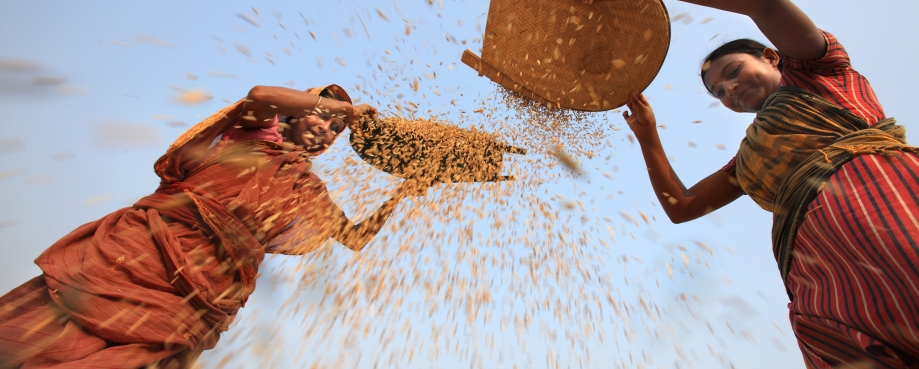
The UN Guiding Principles on Business and Human Rights (UNGPs) are applicable to all states, all businesses, all workers and all citizens. But if they apply equally to women, men, girls and boys, why is it so important to approach them with a gender lens?
As set out by the UNGPs, the principles of RESPECT, PROTECT and REMEDY are universal.
However, while we all have the same rights by virtue of being human, some of us face greater obstacles and need stronger protections in order to realise those rights.
Not all people have equal protections before the law or equal opportunities to pursue their own interests and ambitions.
If you are a girl or a woman, you will have added challenges. You are likely to have fewer choices, a smaller voice and less agency than your male counterparts.
Similarly, people face added layers of discrimination and exclusion as a result of race, ethnicity, caste, religion, sexual orientation or different physical or mental abilities.
This can make it even harder to get a decent education, find employment, or health care, and to play a full part in the political, economic and social life of your community.
So what does this mean for the UN Guiding Principles?
The duty to protect
The first part of the UNGPs refers to a state’s duty to PROTECT workers and citizens from human rights abuses through laws, policies and regulations.
Applying a gender lens, this means that the national laws of a country should fully protect the rights of women and girls and recognise the specific challenges they face.
In practice it also means integrating relevant parts of the Convention on the Discrimination Against Women (CEDAW) into national law – especially those concerned with non-discrimination, employment, sexual, physical and emotional violence and threat.
Unfortunately, for too many women around the world, this reality is still a long way off.
The duty to respect
The second part of the UNGPs concerns the private sector’s duty to RESPECT workers and citizens’ human rights and to ensure that the pursuit of profit does not come at the cost of human rights abuses and exploitation.
In a supply chain context, women make up a large proportion of the worst-paid, lowest skilled, most precarious and vulnerable workforce. Applying a gender lens means focusing on the particular vulnerabilities women and girls face to exploitation and abuse.
Businesses need to ensure that gender features as a central part of their human rights due diligence.
Women need to be counted (literally), the barriers they face to enjoying their full human rights need to be lifted, and businesses need to value and respect the dignity of all workers, whatever their sex, status or occupation.
Access to effective remedy
The last part of the guiding principles is about ensuring that victims of abuse have access to effective REMEDY, whether judicial or non-judicial.
This means ensuring that women have agency and voice to raise grievances and are properly compensated for any harm and injury against them. In most contexts, this means taking sexual, emotional and physical harm far more seriously.
Women and girls are often more vulnerable to threats and abuse compared to their male counterparts.
Human trafficking and forced or child labour are all characterised by the abuse of vulnerability from a position of power, and women and minors are particularly at risk.
It is therefore critical that all processes for grievance and remedy take these disparities into account.
Trade unions should be a critical vehicle for women to organise, collectively raise grievances and agree terms and conditions that are acceptable to them, without fear of reprisal or discrimination.
Taking non-discrimination seriously
Non-discrimination is a universally binding human right, but it hasn’t been taken seriously enough by the international community, by governments, companies, NGOs, or even by trade unions.
It will take concerted efforts by many different people, but social tolerance of sexual violence and discrimination against women is finally changing.
None of this will happen without concerted efforts from governments and business.
Talk of universal principles is not enough.
Women and girls face greater obstacles compared to their male counterparts, and this must be recognised and specifically addressed if everyone is to enjoy a full and equal place in society.
